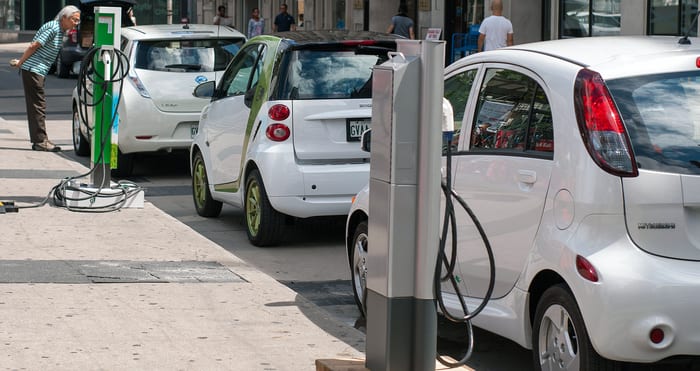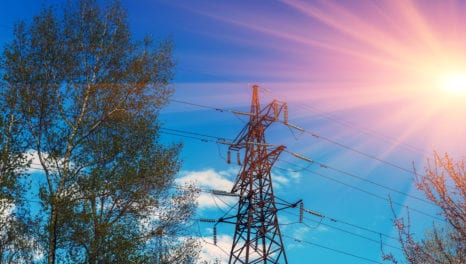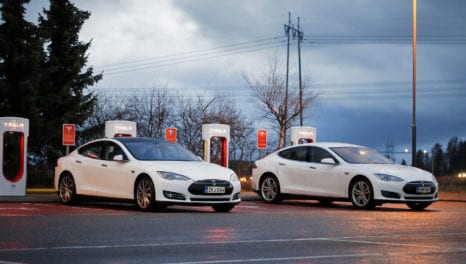Shift to EVs offers opportunity for motoring tax review
Motoring organisations have warned that the advent of increasingly connected, electric and shared road transport presents challenges and opportunities for future Government motoring tax policy.
4th March 2019 by Networks

Nine organisations representing economists, fleets, motorists, the automotive industry, energy providers, and local government have contributed to a new British Vehicle Rental and Leasing Association (BVRLA) report: Road to Zero: time to shift gear on tax.
They point to the impending decline in revenues from the current CO2 emissions-based regime and highlight the potential for a new tax system that could help tackle devolved transport priorities including urban air quality and congestion.
The report, which was also endorsed by leading MPs, reveals consistent findings and attitudes among its contributors, including:
- “No change” on vehicle tax isn’t an option: the consequences for drivers and the environment are too severe and the opportunities to seize are too great
- New technologies present an opportunity to develop a fairer and more sophisticated tax system that could be based on distance travelled, time of journey, location or air pollution
- Government taxes and incentives need to give fleets and motorists a clearer and more consistent long-term message that investing in plug-in electric vehicles will bring economic benefits
- The Treasury needs to protect future motoring tax receipts as drivers move to electric vehicles and CO2 -based income declines – by up to £2bn per year
- The UK’s increasingly devolved transport policy has given cities and regions greater powers to impose local motoring charges and taxes. Local policymakers need greater national government support in designing and implementing these schemes so that they are both fair and consistent
- The way we are driving is changing – from ownership to shared use – and the tax system needs to keep up.
The BVRLA wants the report to stimulate a dynamic discussion between drivers, the automotive supply chain and policymakers about creating a tax system fit for the future. The BVRLA’s chief executive Gerry Keaney said: “Time to Shift Gear on Tax is the first report of its kind, bringing together a host of policy perspectives and ideas that all demonstrate the urgent need for vehicle tax reform. We thank all our partners for their brilliant contributions.
“Fuel duty, VED and Company Car Tax have been successful in driving down carbon emissions. Now it is time to go back to the drawing board and explore how the fiscal regime could also make roads safer, less congested and fit for the future.
“We want the report to kick-start a process of change, with industry working with the Treasury. A taskforce with the kind of expertise shown in the report will help drive this forward.
“The exciting vision set out by the Government’s Road to Zero Report and Industrial Strategy demonstrates that transport is a priority. UK policymakers have been busy creating the right infrastructure and regulatory environment for connected, autonomous and electric cars. Now is the time to look at tax.”
Comments
Login on register to comment
Related content

Power
The future for vegetation management
Why networks should focus on data not trees to overcome the costly challenges involved in vegetation management

Power
An unprecedented opportunity for change
Why short interruptions will matter in RIIO-ED2 and how to address them.

Power
Time for less talk and more action on decarbonisation
Core "oven-ready" solutions to decarbonising heat and transport exist today and should be implemented without delay, says WPD's future power networks expert.
Related supplier content

Power
Load patterns and lockdown: how Covid-19 is impacting electricity networks
Insights into dynamics on the low voltage network as the outbreak unfolds

Downloads
Protect electrical equipment from insulation failure
Insulation faults are a major cause leading to the eventual failure of electrical equipment. Partial discharge (PD) is a very reliable indicator of developing insulation faults. Regular PD testing allows users to detect and analyze PD activity

Heat
How E.ON. is helping the City of London become a zero emissions city
Discover Citigen. Deep in the heart of our bustling capital